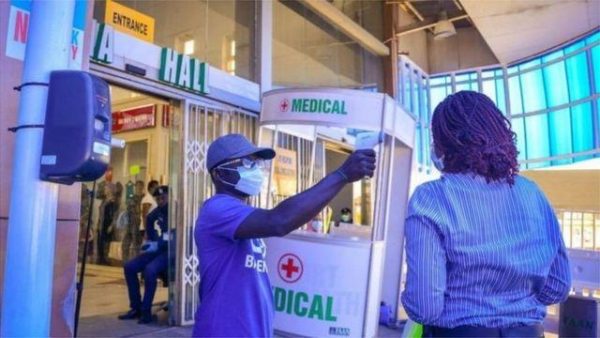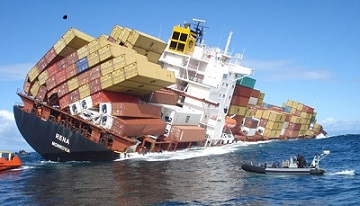SHIPPERS GUIDE
C-19: Exploring Sustainable Airports Security Strategies
By Ayoola Olaitan
The unprecedented crisis the world is facing poses a great challenge to the entire aviation industry and its capacity to recover both operationally and financially. According to International Civil Aviation Organization (ICAO), world passenger traffic fell by 52.9 per cent and capacity worldwide fell by 36.2 per cent year on year in April 2020. The COVID-19 pandemic has dramatically affected the air transport system, in ways that we have never seen before. The impact on airport operations, including aviation security, is significant.
The role of ICAO during COVID-19
As the world was entering its confinement phase, ICAO immediately took on the task of ensuring operational regulatory certainty, whilst strengthening passenger confidence in air transport. This entails the harmonisation of, and adherence to, international regulations and best practices so that the entire industry can operate within a commonly agreed framework. Central to these efforts was the rapid policy response by the ICAO Council’s COVID-19 Recovery Task Force (CART), which is supported by the ICAO Secretariat COVID-19 Emergency Programme Group and includes representatives of all major aviation industry associations. At the beginning of June, the ICAO Council adopted and issued strategic priority recommendations and guidelines, which focus on principles for a safe, secure and sustainable restart and recovery of international civil aviation.
Despite the continued impact of the pandemic around the world, states have started loosening travel restrictions as the normalisation of sanitary measures becomes widespread. Such measures aim to protect the health and safety of airport staff, crew and passengers in a bid to reduce the spreading of COVID-19 among people and across borders. The role played by aviation security is fundamental in establishing that new normal.
New security requirements
By design, security processes at airports involve many verbal and physical interactions between security staff and the travelling public, which makes physical distancing a challenge. Proximity is inevitable when verifying travel documents or when screening passengers and their belongings. As one can imagine, manual searches of persons (often referred to as pat-downs) will be limited as much as practicable during the crisis. To those constraints can be added the limited space within which airports are normally capable of accommodating an efficient security screening checkpoint, along with feeding queues.
To address those challenges, ICAO, in collaboration with states and industry experts, coordinated the development of a guidance document called the ICAO ‘Guidelines for Aviation Security Contingency Measures during the COVID-19 Pandemic’. These guidelines are designed to assist states and relevant stakeholders in complying with international security provisions and applying security best practices while meeting requirements mandated by health authorities. The document recommends temporary solutions to implementing security measures during these difficult times.
One of the cornerstones of those guidelines is that adequate security levels shall be maintained at all times in order not to introduce vulnerabilities in the system. This is a fundamental principle that cannot be transgressed. Indeed, despite the current low number of regular operations and the fact that the widespread nature of the disruption may have resulted in a temporary lowering of terrorist capability, aviation is, and will continue to remain, a target of choice for terrorists. It should be noted that air cargo continues to operate at high capacity levels during the crisis. It is for those reasons that efforts and resources should be directed to closely monitor threat levels (especially those related to air cargo and insider threat), while vulnerabilities arisen as a result of current disruptions should be reduced as much as practicable, both in time and scope.
Innovation is anticipated to be key in restoring pre-COVID-19 traffic volumes and growth.
The new sanitary requirements affect all areas of aviation, and air travel will look very different to what we were used to for the foreseeable future. Aviation security will continue to adapt its processes and procedures to integrate sanitary measures while maintaining adequate security levels. Innovation is key in restoring pre-COVID-19 traffic volumes and growth while applying the required sanitary measures.
Technological measures
Some recent technological innovations can already contribute towards greater efficiency in aviation security during COVID-19. Crowd control systems can help manage adequate physical distancing at queues and security checkpoints; modern screening equipment, such as explosive detection systems for cabin baggage, allows for faster screening processes with lower rates of false alarms and increased detection capability; and biometric systems are an effective tool for access control, allowing for contactless identity checks.
Individual measures
On top of technological innovations, some other simple adjustments to existing measures could contribute to protect the health of those at airports while meeting security outcomes. For example, staff and passengers are recommended to keep their masks on while going through security and airport staff subject to screening should refrain from carrying personal items, if possible.
Measures for air cargo
Ensuring the continuity and efficiency of air cargo continues to be extremely crucial in the current context. In this regard, ICAO recommends that existing secure supply chains be leveraged so security controls can be applied upstream, thereby reducing the need for physical security screening at the airport. These methods allow for expedited processes where manipulation of goods is reduced and health risks to security staff and handlers are mitigated.
A new security culture
All of this must be underpinned by a robust security culture, which will be of utmost importance in implementing security measures in such a way that health protocols are observed. Personal commitment will be the foundation in this effort. As evidenced by previous events, such as the global implementation of blanket restrictions on the carriage of liquids, aerosols and gels on board aircraft, much can be achieved through awareness campaigns and public outreach. Proper preparation of passengers as they are about to undergo security screening would help lower the number of false alarms, which in turn would limit the need for alarm resolutions via physical contacts (such as manual searches). Given its importance, ‘security culture’ will be the common thread in ICAO aviation security events through 2021, with a focus on training and awareness raising for the travelling public, as well as airports, airlines and security staff.
Aviation is international by nature, and harmonising and aligning initiatives, solutions and requirements is central to that goal. Cooperation and active information sharing among all stakeholders is paramount to achieve the desired harmonisation levels, which, in addition to accomplishing consistent security levels around the different regions of the world, would contribute to increasing public confidence in the air transport system.
Taking a Proactive View
Every crisis that has challenged the aviation industry – from 9/11 to SARS has left an indelible mark on airport and airline operations. The next 12 months will require airports to deal with a new set of challenges of a magnitude never encountered before.
It is critical not just to react, but to take a proactive, strategic posture. By harnessing innovation and the power of technology, airports should accelerate the move towards implementing an Airport Operations Centre (APOC), at the heart of airport management and gear up for the rebound on the horizon.





